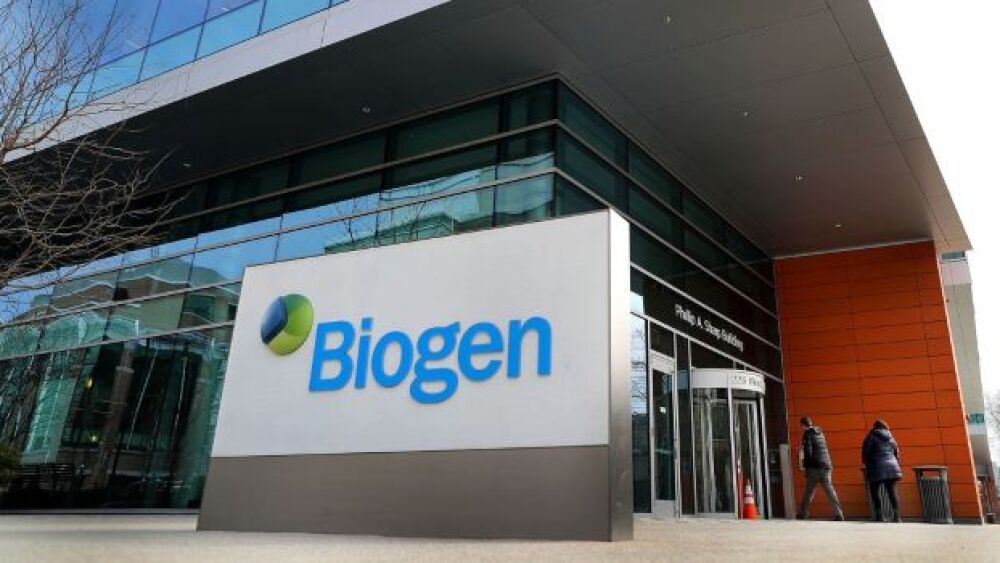Biogen will await word after submitting the final study protocol for its confirmatory Phase IV ENVISION trial of Aduhelm to the U.S. Food and Drug Administration (FDA).
Courtesy of John Tlumacki/The Boston Globe via Getty Images
Biogen will await word after submitting the final study protocol for its confirmatory Phase IV ENVISION trial of Aduhelm to the U.S. Food and Drug Administration (FDA).
The global biotech company, which focuses on neuroscience, expects its first patient to enter the trial’s screening period in May 2022, should it receive approval. The study is expected to be completed in an accelerated timeframe of 4 years.
The FDA requires the confirmatory ENVISION study as a post-marketing requirement and part of the accelerated approval of Aduhelm (aducanumab-avwa) as an intravenous therapy for patients diagnosed with either mild cognitive impairment due to Alzheimer’s disease or mild Alzheimer’s disease.
Aduhelm is a monoclonal antibody that works against amyloid-beta and is given as a 100 mg/ml injection via IV. Biogen and Japanese partner Eisai have been jointly developing, commercializing and manufacturing the drug since 2017. Biogen claimed the sole decision-making authority over the direction the drug will take on March 14, though the companies will maintain their profit/loss sharing agreement, depending on certain conditions.
“Our unwavering commitment is to ensure that the trial is completed swiftly and that the diversity of patients in it reflects that of Americans diagnosed with early Alzheimer’s disease. We plan to work hand-in-hand with underrepresented communities and Alzheimer’s disease groups to achieve our diversity and inclusion goal,” Samantha Budd Haeberlein, Ph.D., SVP and head of neurodegeneration development at Biogen said in a statement.
In December 2021, Biogen announced intentions to submit its final protocol for review in March and has so far kept to schedule.
The confirmatory study will be global in nature, involving over 1,300 Alzheimer’s disease patients. Its primary endpoint will be measured 18 months after the treatment commences by the Clinical Dementia Rating-Sum of Boxes (CDR-SB). It will also cover a long-term extension study to collect longer-term data for up to 48 months.
Secondary endpoints include change in amyloid positron emission tomography (PET) and Tau PET numbers, the Alzheimer’s disease assessment scale-cognitive subscale (ADAS-Cog 13), Alzheimer’s disease cooperative study - activities of daily living - mild cognitive impairment version (ADCS-ADL-MCI), integrated Alzheimer’s disease rating scale (iADRS), mini-mental state examination (MMSE) and neuropsychiatric inventory (NPI-10).
For the trial to be truly representative of the global population, at least 18% of the target participants in the U.S. will be from Latino and African American communities. Biogen is working with a number of community groups to increase the participation of historically underrepresented patients in the trials, including the National Minority Quality Forum.
The key elements of this initiative include choosing locations that have diverse staff and patient populations, supporting trial sites where underrepresented communities are and partnering with local organizations to increase awareness and making resources on Alzheimer’s disease more easily available.





